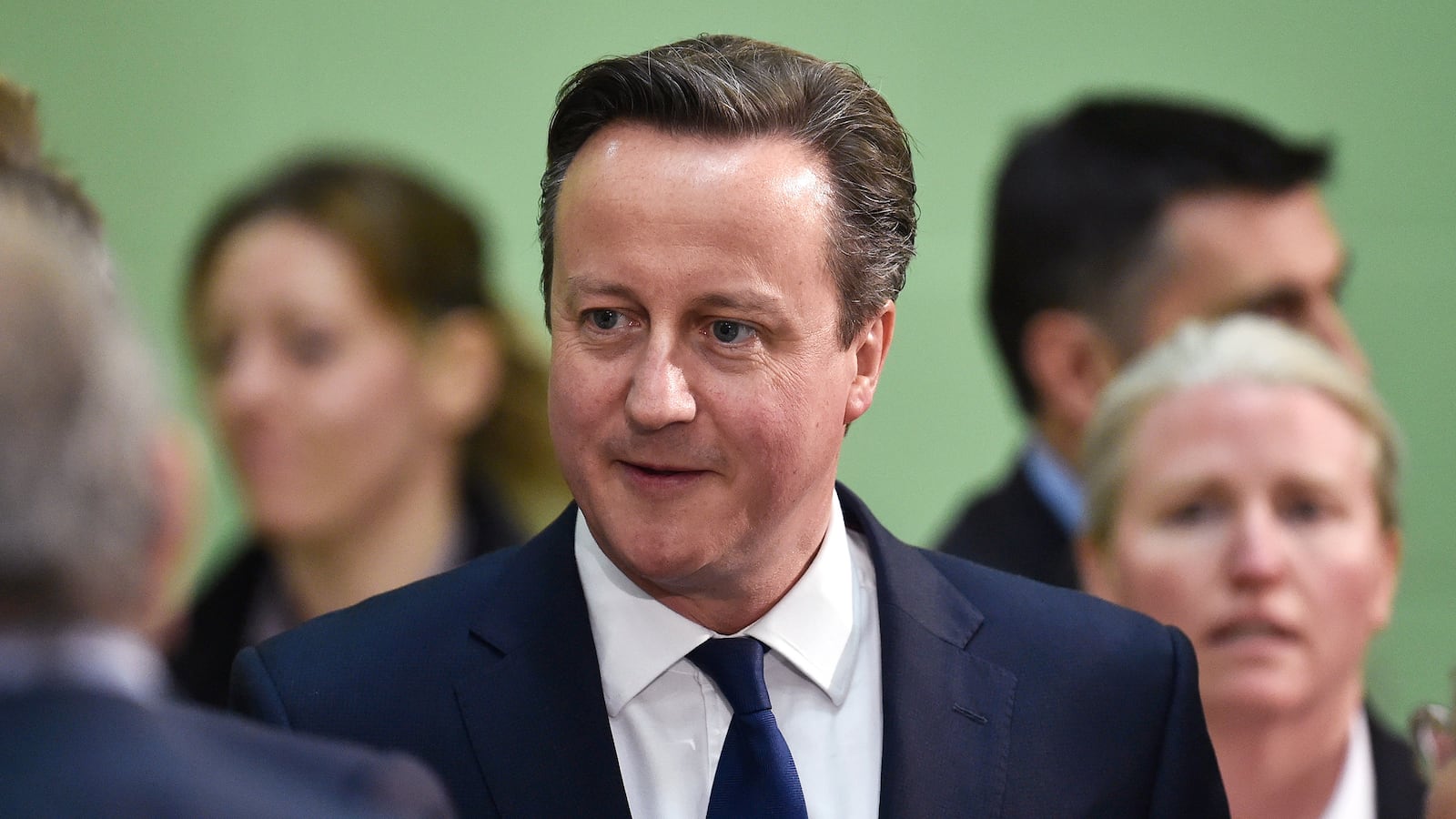LONDON — David Cameron has won an astonishing and unexpected election victory in the bitterly divided United Kingdom.
An unprecedented tidal wave of support for the Scottish National Party helped the Conservative leader by wiping out Labour’s stronghold in the north but more than 50 separatist MPs will now march into Westminster with the central aim of breaking up the country.
Cameron will attempt to lead a splintered nation without the comfort of a strong majority in the House of Commons. While the Conservatives won in England, the SNP swept Scotland, Labour was victorious in Wales and the Democratic Unionist Party took the most seats in Northern Ireland. Against a backdrop of internal division, Cameron has also promised the British public a referendum on the country’s membership of the European Union.
The coming five-year parliament will be a period of great turmoil.
Speaking at dawn on Friday, Cameron said: “I would like my party… to reclaim the mantle that we should never have lost. The mantle of one nation; one United Kingdom.”
Critics will say the damage is already done. His campaign strategy of using the Scottish nationalists as a bogeyman to cajole English voters into falling in behind the Conservatives gave succor to those very SNP candidates he claimed to oppose.
It also appears to have worked. Many people feared that a vote for Labour in England would allow the SNP to seize too much influence in Westminster. Whatever the argument that eventually secured victory, the scale of the Conservatives’ unforeseen victory is destined to become a case study for political advisers and historians the world over.
A swing to Labour that was consistently forecast over months of intensive polling spectacularly failed to materialize. Even those polls that had the Tories winning the most seats all agreed that it would be impossible for Cameron to improve his position and win an outright majority, however small. They were wrong.
Jim Messina, the Obama campaign veteran employed by the Conservatives, was one of those rubbing the pollsters’ noses into their failed predictions. “Things US & UK have in common: completely broken public polling & re-electing their strong leaders,” he wrote on Twitter.
The electorate had been given an unusually stark choice: Cameron, the incumbent, pro-business product of Britain’s poshest school, or Opposition Labour leader Ed Miliband, the geeky son of a Marxist intellectual, who would have become Britain’s most left-wing leader in a generation.
Boris Johnson, the Conservative mayor of London, who returned to Parliament with a victory in North London, said there was no longer any room for misinterpreting voters’ wishes. “The people of Britain, after a long and exhausting campaign, have finally spoken. I don’t think we need any fancy constitutional expert to tell us what they were trying to say,” he said. “I think they have decisively rejected any attempt to take this country back to the 1970s, decisively rejected old-fashioned and outdated politics of division.”
In the end Labour missed most of their target seats outside London, where they fared a little better. Miliband surprised few by both keeping his seat, but swiftly announced his resignation as party leader.
On a humiliating night for Labour, Shadow Chancellor Ed Balls, who drafted the party’s economic plan, did not get the chance to resign. He became the highest-profile casualty of the night, losing his seat in a Labour heartland to a young Conservative challenger.
In Scotland, the party was all but wiped out by the buoyant SNP. “There’s a lion roaring in Scotland tonight. A Scottish lion,” said former leader Alex Salmond. “It’s going to roar with a voice that no government of whatever political complexion is going to be able to ignore.”
The most remarkable SNP winner was little more than a cub. Mhairi Black, a 20-year-old politics student, comfortably defeated the man who ran Labour’s election campaign, Douglas Alexander. She becomes the youngest member of Parliament since 1667.
The other story of the night was the rout of the Liberal Democrats. The junior members of the ruling coalition government had been expecting to become kingmakers once again, but they were annihilated, losing all but eight of their 57 seats in Parliament. Voters were determined to see them punished for accepting the trappings of office and propping up the Conservatives in exchange for giving away some of their most well-known policy principles.
The first signs of trouble emerged earlier in the day, when Liberal Democrats—who had a strong lead to defend in the seat of Hornsey and Wood Green in North—began to accept that they were on course for defeat.
The suburban district was only 93rd on Labour’s target list, but the Liberal Democrats could not resist a national mood of recriminations against them. “Most of Europe is ruled by coalitions, but people here just can’t get their heads around what we did,” a party official told The Daily Beast.
Labour activists expressed their delight, but the exit polls suggested that this potential Labour bright spot was simply a side effect of a nationwide Liberal Democrat collapse. Professor Patrick Dunleavy, from the London School of Economics’ Department of Government, said the party’s decision to join Cameron’s coalition proved fatal. “This is existentially disastrous for them,” he said. “Their very existence as a party is in jeopardy.”
Victory for Cameron will ensure that he keeps rivals Boris Johnson and Theresa May at bay for a while, but his narrow majority still leaves him vulnerable. One of his first orders of business will be the European referendum he promised. As part of his pitch to persuade U.K. Independence voters to return home to the Conservatives, he pledged to hold an in/out referendum on membership in the European Union. His party is dangerously split on the issue that will now dominate the next two years of British politics.






